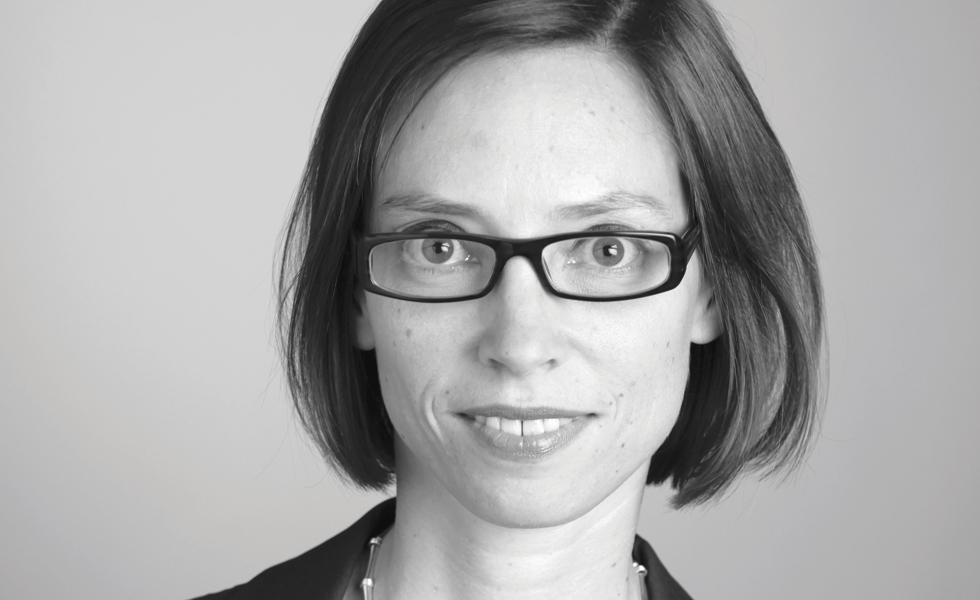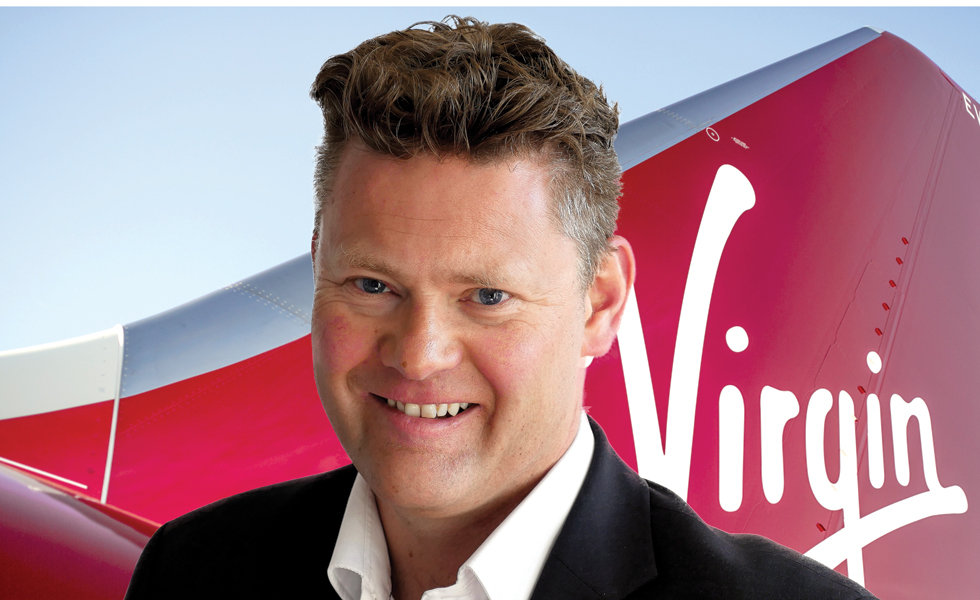How do lawyers work with their clients? What are the challenges they face? What is their day-to-day interaction like? We quizzed Kim Dietzel of Herbert Smith Freehills and Julian Homerstone of Virgin Atlantic about their working relationship.
 The lawyer: Kim Dietzel is a competition law partner at Herbert Smith Freehills
The lawyer: Kim Dietzel is a competition law partner at Herbert Smith Freehills
Q: How did the personal relationship with Julian come about? When did the two of you first meet and what were the circumstances?

Julian and I have worked together for well over 10 years. I had been doing work for others in the Virgin Atlantic legal team for a short while when Julian joined that team. Initially he was less involved in the sort of projects at Virgin Atlantic that required competition law advice on which we acted, but as he rose through the ranks, he became more involved in those and we started to have more regular interactions. Once Julian became the head of the legal team and then General Counsel, our relationship grew further.
Q: What kind of legal work do you actually do for Virgin Atlantic?
We’ve worked on a couple of very significant matters in the last four or five years. For example, in 2012-13, we advised Virgin Atlantic on the transaction that saw Delta Airlines buy a 49 per cent stake in Virgin Atlantic and enter a joint venture agreement for joint flying from the UK to the US. Getting the necessarily regulatory approvals and legal comfort involved overcoming a number of hurdles. We worked very closely with the entire Virgin Atlantic legal team on this. Also, making the joint venture work for all concerned has involved some ongoing legal counselling. It has been a great success for both Virgin Atlantic and Delta, and thus a great project for us to be involved with.
“Making the joint venture work for all concerned has involved some ongoing legal counselling”
Over the past year and a half, we have also advised Virgin Atlantic on a novel financing structure, which enabled the airline to raise finance on the basis of its airport take-off and landing slots. This has never been achieved before. It has been attempted previously, but not successfully pulled off, so arriving at a workable structure required real dedication from the Virgin Atlantic team and the Herbert Smith Freehills team.
The project involved many members of Virgin Atlantic’s commercial team, which meant areas of the business that would not ordinarily have interactions with outside lawyers got to know the Herbert Smith Freehills team. It was great to be so involved with the client on this. The icing on the cake is that we and Virgin Atlantic have won a number of industry awards on the back of the deal, not least The Lawyer Finance Team of the Year gong. It is great when you can help a client achieve something groundbreaking such as that.
Q: How much contact do you have with each other and what form does it take?
When we are in the midst of a big project, we might speak several times a week or even daily. We will also email a lot, but both Julian and I are conscious that you can often cut through a lot by picking up the phone to each other, instead of lengthy email exchanges. We also have regular face-to-face meetings, in our offices in London or in Virgin Atlantic’s offices in Crawley. I also always enjoy going down to Crawley (near Gatwick) to visit Julian and his team. Being down near Gatwick airports reminds you what the Virgin Atlantic business is all about.
When we are between big projects, we stay in touch through updates on relevant legal developments, what is going on in the business, and what sort of issues we as external lawyers should be looking out for for Julian and his team. We also run regular training sessions for the legal team, and have the odd lunch or dinner to catch up.
The client: Julian Homerstone is General Counsel at Virgin Atlantic
Q: How important is it to you to have a personal relationship with your lawyers? Does it really matter?

Of course it matters. Establishing a successful long-term business relationship starts with the basics. It’s a given that any legal adviser retained by Virgin Atlantic is a recognised expert in their chosen area of expertise. The difference between a short-term, professional relationship of convenience versus a successful long-term business relationship, is the individual. People deal with people. Working in law raises many challenges and these are best met head on with individuals, whether they are internal or external colleagues, working together as a team with mutual respect, professionalism and (where the situation permits) a healthy dose of humour.
Q: What’s the historical relationship between Virgin and HSF?
Herbert Smith Freehills is a very long standing adviser of Virgin Atlantic. They have supported us on many of our biggest successes and challenges over the years and are currently one of our main external advisers. They work closely with my internal team to provide complex multi-jurisdictional competition, corporate and regulatory advice, which touch or concern Virgin Atlantic’s commercial activities.
Q: What are the major challenges that the aviation sector is facing that your lawyers need to be aware of?
Our greatest challenge (as always) is to continue to stay ahead of the competition. In terms of our people we need to continue to recruit and retain the best talent and in terms of our service offering, we need to ensure we can continue to enhance our award winning product and services with typical Virgin flair.
From an industry standpoint, there are many challenges facing aviation. These include environmental concerns, expanded runway capacity in the South East, changes resulting from Brexit, market volatility, fuel and foreign currency fluctuations and increased regulatory obligations. The list goes on and on. Our job here at Virgin is to make sure we continue to play a full and constructive part in those debates. Retaining the best lawyers both internally and externally remains key to meeting those challenges head on, to ensure our continued long-term success.
Q: Law firms must pitch to you for work quite a lot. What are the things that impress you in a pitch and what do law firms get wrong?
I’ve seen many good pitches and some bad ones. The key to a successful pitch is “preparation, preparation, preparation”. Do the basics well. It is essential to understand your client. You should know in advance what makes the client tick. Why have they invited you to pitch and what is the client trying to achieve? You should try to establish in advance the client’s commercial objectives and then emphasise your firm’s relevant experience, and know-how to meet that need, during the meeting.
“It’s a given that any legal adviser retained by Virgin Atlantic is a recognised expert in their area of expertise”
During the pitch, tailor your presentation to the client, not the client to the pitch. You should use active listening techniques. It is also important to show the necessary strength in depth of your team. External law firms are not just about high flying partners. It is about the totality of the support package being offered and good trainees and associates are also key.
During a pitch I consider lots of factors. These include: Can I work with these advisers? Are they dynamic? Are they creative in terms of fee proposals? Will they deliver value? Have they a clear delivery plan covering the required work scope? Have they visualised and are they able to articulate what steps they will be taking? How they will take those steps and when and what support they will require from my internal legal advisers or Virgin Atlantic as a whole?
Herbert Smith Freehills are typically good at the above. They have consistently won ongoing mandates to advise Virgin Atlantic on various matters over the years.
Q: Obviously you would expect a law firm to provide excellent legal advice, but what are the ‘value-added’ things that lawyers do which impress you?
In any long-term relationship, delivering “value-add” remains key. Virgin Atlantic is privileged to have access to many of the UK’s top law firms. “Value-add” can come in various guises. We’d expect firms who win a mandate to advise our group to be creative on fee arrangements; they must also be proactive and come to us with ideas. Developments occur across industry and lawyers that can spot trends in one sector and apply those developments in another, are typically very successful.
Finally, additional “value-add” can be generated by giving clients access to training, know-how and secondees. All of these types of additional initiatives help develop and maintain a long standing legal, business partnering relationship between the client and its external lawyers.

 The lawyer:
The lawyer: 























